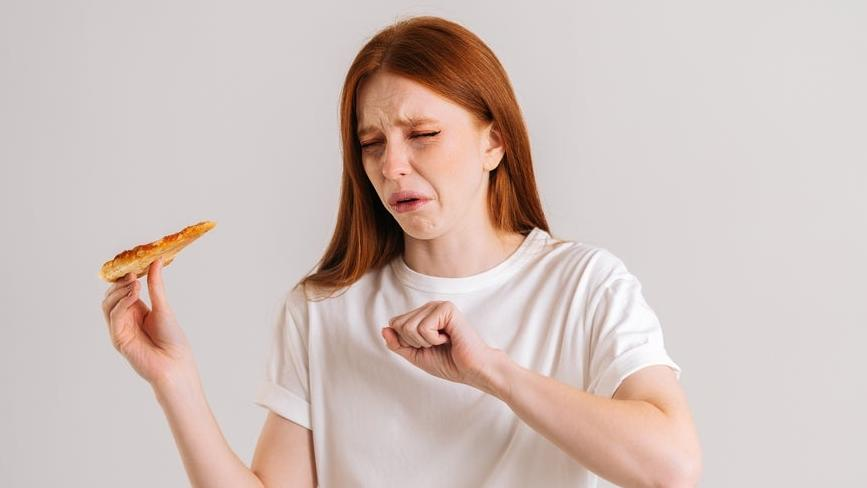What Really Happens When Food 'Goes Down The Wrong Pipe'
Why a bit of food can sometimes leave us coughing, and what to do about it.
We've all had the moment where we start coughing like we're dying because a crumb of food or a sip of water "went down the wrong way." It's a phrase we all say, but what does it actually mean? Why does our body take in food without incident 99.9% of the time, and then totally mess up the task 0.01% of the time?
What happens when food goes down the wrong pipe?
Not only is food "going down the wrong pipe" a real thing that happens, but there's also an actual medical term for it. Aspiration is when you inhale food or drink into your vocal cords instead of the esophagus, the tube that sends food down into the stomach, explains an article from McGovern Medical School at UTHealth Houston.
When you aspirate, food or liquid bypasses the esophagus and makes it past your vocal folds (aka vocal cords), entering the trachea; this is dangerous, because it can also send a foreign object into the lungs. Your larynx senses this foreign item and induces coughing to clear the passageway and keep it free of anything that might threaten the lungs. If your body isn't able to get rid of the food through coughing, you might contract a fever, experience reduced oxygen levels, and potentially develop pneumonia or bronchitis.
You don't even need to be eating or drinking to experience this sensation. Have you ever choked on your own saliva a little bit? That's also considered aspiration, so don't feel too embarrassed when your eyes water and you're trying to talk through intermittent coughs. In fact, because swallowing is such an automatic process of the body, aspiration can happen more often when you're distracted, writes the Cleveland Clinic. However, if you're experiencing aspiration on a regular basis, you may want to consult your doctor, as it could be a sign of a swallowing problem, dysphagia, linked to a wide array of physical or neurological disorders.
How to stop food from going down the wrong way
While the annoying experience of hacking up a pesky chip crumb is bound to happen to all of us once in a while, there are some things you can do to reduce the likelihood of aspiration.
For one thing, you can try keeping generally good table manners, as the Cleveland Clinic recommends. Instead of carrying on full conversations with an entire bite of chicken rolling around in your mouth, chew with your mouth closed and pause your contributions to the conversation until after you've swallowed. Another tip is to slow down. Yes, maybe you haven't eaten in many hours and the plate of nachos in front of you is smelling irresistible, but instead of gobbling giant mouthfuls, keep a steady pace of smaller bites, reaching for the next one only when you've swallowed the previous bite.
The clinic also discourages eating any fried and heavily seasoned foods at least three hours before you go to sleep, as those types of foods can cause acid reflux. That acid, in turn, has a greater chance of being aspirated as it rises through your esophagus.
It's important to your long-term health to keep those pipes free and clear. While your body will involuntarily direct that flow of traffic most of the time, we can all do our part to obey the rules of the road.
